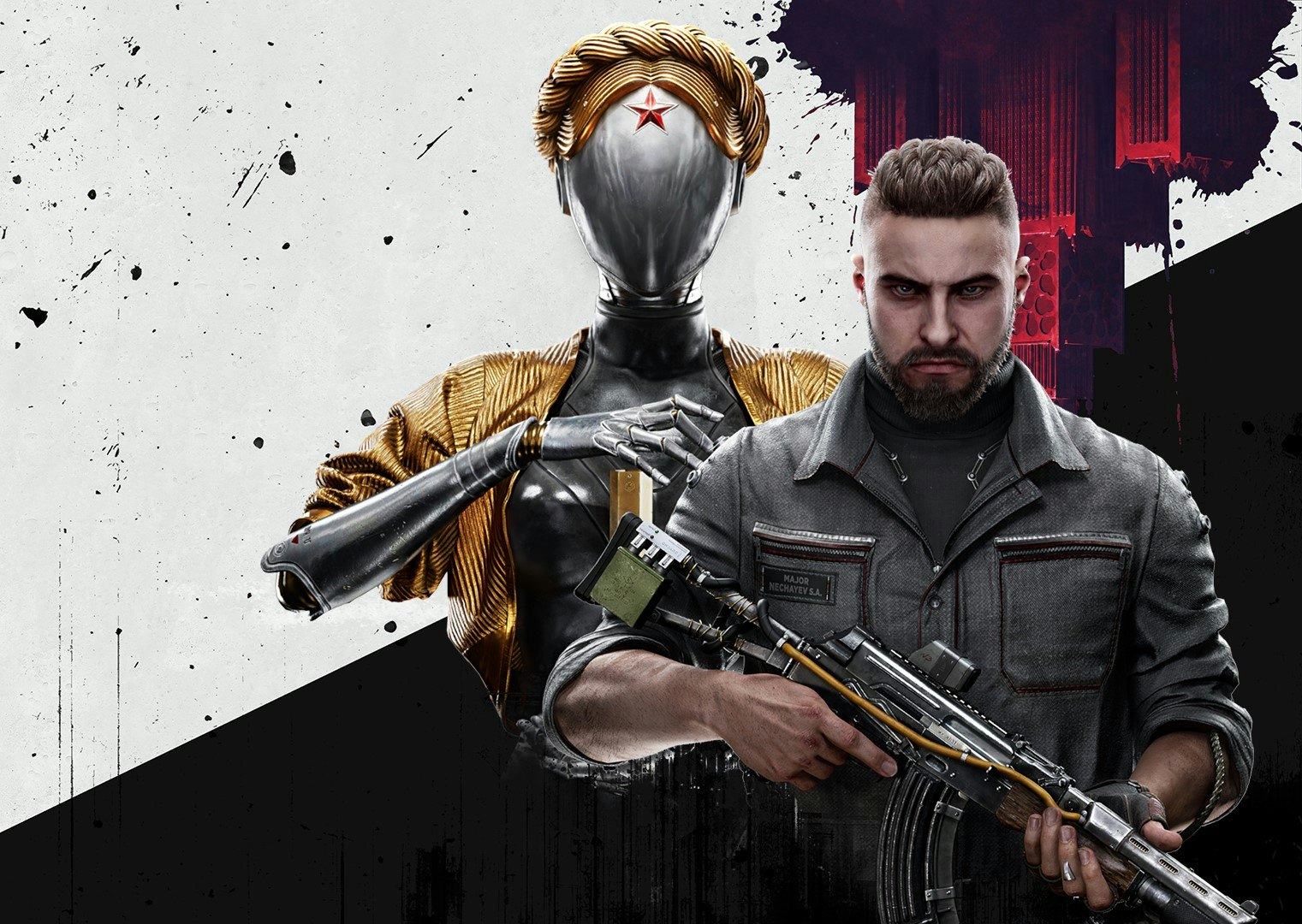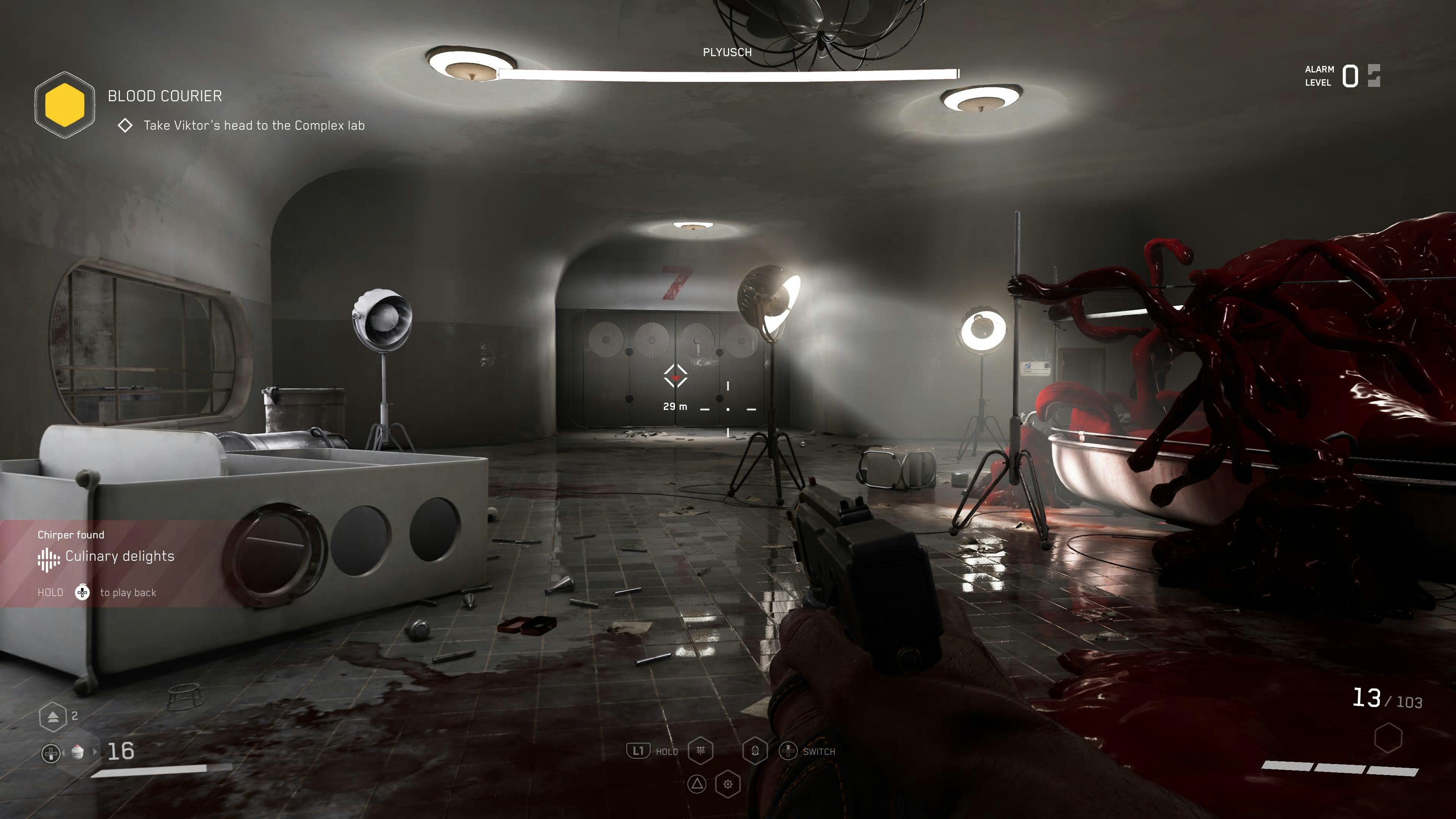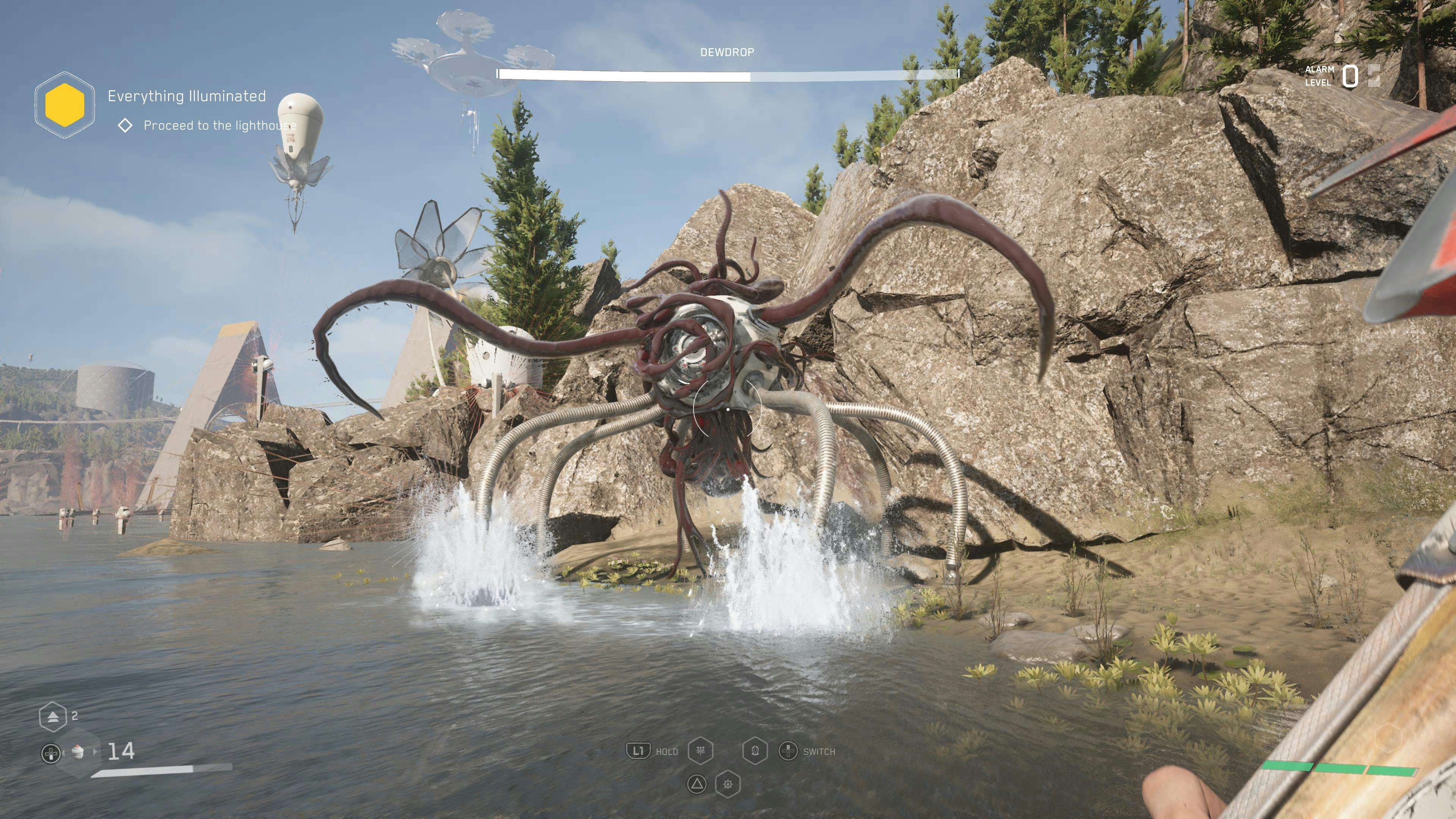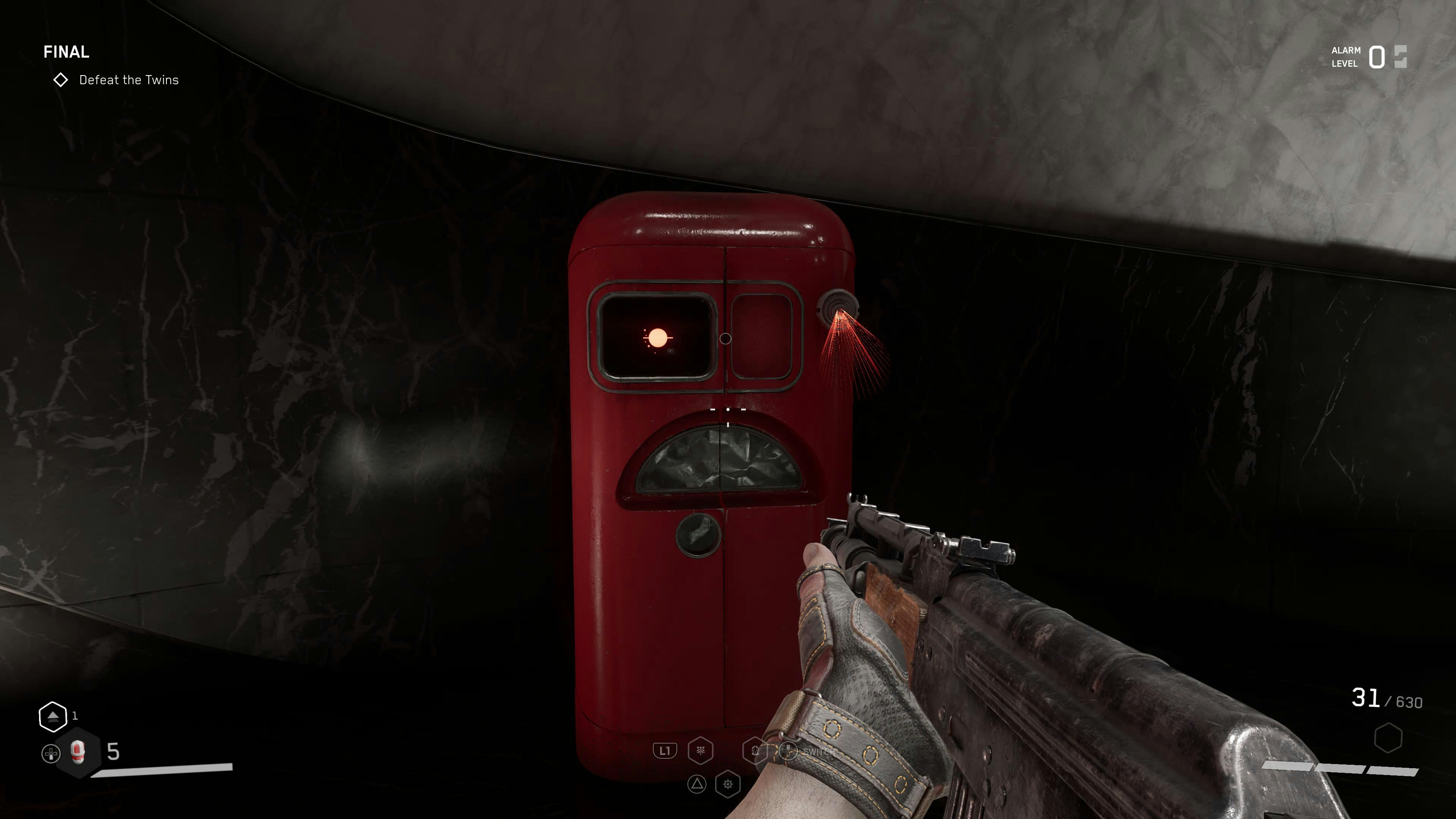
A stampede of mutants is unleashed, but they don’t stand a chance in Atomic Heart. They pour in through the half-destroyed hallway ahead, but each blast of my multipurpose shotgun shreds through them in rapid succession. Just as the last mutant – an undead with plants growing from its head – closes in on me, I miss my last shot, leaving me no choice but to whip out my axe.
No ammo? No problem.
After I hack it to bits, I visit an upgrade station to replenish my supplies. Unfortunately, every upgrade station in Atomic Heart is run by an aggressively horny robot named Nora.
“Enter me hard and often,” she says as I navigate a skill tree to upgrade some stats.
Atomic Heart is proof that gameplay is king. A snappy blend of action and abilities evoke the best of BioShock, but Atomic Heart is plagued by horrendous writing, an unnecessary open world, and baffling design decisions like the robot who sexually harasses you for hours on end.
Atomic Heart draws heavily from BioShock, Half-Life, Wolfenstein, and Fallout. It’s an open-world, first-person shooter set in a dystopian alt-reality 1955, in which the Soviets have taken over the world after developing advanced robotic technology that goes horribly wrong. You play as an elite soldier named Major P-3 who’s tasked with investigating the mysterious cause of a robotic outbreak. The evil scientist Dmitry Sechenov has developed a way for humans to control robots with their minds, but the plan goes awry, leading to the mechanical outbreak.
Irresistible Atmosphere

Atomic Heart’s clash of vintage aesthetics with futuristic robots is enough to grab your attention, with lots of off-the-wall set pieces to keep you hooked. Vibrant colors and upbeat tones contrast with the game’s many surprisingly horrific situations — don’t overlook that you have hordes of zombie mutants and deadly robots to worry about.
These striking visuals carry through many of Atomic Heart’s dungeon-like sections, which pit you against mutated zombie creatures or the frightening Plysuch, which is basically just a walking endoskeleton. Robots and humans alike move in realistic ways, which is even more impressive when you remember that this is developer Mundfish’s first game.

The lighting during certain portions helps create a moody atmosphere that pulls from horror games like Resident Evil 7 or Alien: Isolation. In many ways, it feels like a survival horror game, since you often have just barely enough resources to get by, which is a nice touch (usually).
Exploring every nook and cranny for supplies lets you craft new weapons and items, as well as upgrade your existing arsenal of firearms. It’s an effective and familiar gameplay loop that builds out the world by incentivizing exploration.
Packing a Punch

Atomic Heart‘s many weapons offer plenty of variety. Each shot packs a punch, such as the Dominator pulse cannon, the KS-23 shotgun, or even the Swede axe. Despite the retro setting, these weapons make you feel like a high-tech powerhouse, particularly when coupled with a quick dodge mechanic that adds more fluidity to the combat.
This feature really shines whenever Atomic Heart sends numerous enemies at you simultaneously. In many games, dealing with hordes can feel repetitive and boring, but Atomic Heart keeps you on your toes without overwhelming or boring you. It does this by emphasizing mobility alongside a diverse array of weapons and abilities.
Boss battles are a memorable and dynamic affair. One of the best is a robot called Dewdrop, which requires you to jump and dodge at precise moments to find an opening to attack – all while utilizing elemental weapons. It’s more than just unloading on the enemy, rewarding you for well-timed movement, thoughtful strategy, and accurate aim.
Discomfort at the Forefront

Despite the solid gameplay and memorable atmosphere, the pleasures of Atomic Heart are undermined by problematic and oftentimes inexcusable writing.
Dialogue sounds like it was written by a teenager. Unlikable characters spout predictable phrases, which makes the whole experience feel phoned-in. P-3 also has a nasty habit of yelling the phrase “crispy critter!” when anything bad happens, which gets old after you’ve heard it a hundred times.
Eventually, cringe writing descends into full-on misogyny. Your upgrade station, Nora, sounds like something a horny teenager would dream up. At first, you can overlook this as nothing more than an ill-placed joke, but considering 100 percent of Nora’s dialogue is sexual, it makes you want to avoid upgrading your weapons entirely.
Atomic Heart’s attempts at platforming are also abysmal. You’ll get bored shimmying across edges at a snail’s pace, and trying to nail the narrow margin of success while leaping to a nearby platform is consistently exasperating. This is a game of extremes that tries to do too many different things and fails at most of them.
Atomic Heart also takes a stab at open-world elements, even though it doesn’t need to. There’s almost nothing to do in between main hubs, making the trek from A to B feel like artificial bloat. You spend most of your time inside dungeons and buildings anyway, so those developmental resources would have been better spent on better writing and dialogue, rather than a middling open world.
Although Atomic Heart is fun to play for its combat encounters, it’s packed to the brim with frustrating platforming and horrendous writing, making it tough to recommend. Ultimately, Atomic Heart feels like a Ubisoft game made by edgelords who love BioShock and Russia in equal measure. It’s a jack of all trades and master of none, which lands it somewhere near “decent.” The end result is an uneven gaming experience that has fun moments sprinkled throughout a marathon of cringe.
6/10
Atomic Heart is available for PS4, PS5, Xbox One, Xbox Series X|S, and PC. Inverse reviewed the PS5 version.
INVERSE VIDEO GAME REVIEW ETHOS: Every Inverse video game review answers two questions: Is this game worth your time? Are you getting what you pay for? We have no tolerance for endless fetch quests, clunky mechanics, or bugs that dilute the experience. We care deeply about a game’s design, world-building, character arcs, and storytelling. Inverse will never punch down, but we aren’t afraid to punch up. We love magic and science-fiction in equal measure, and as much as we love experiencing rich stories and worlds through games, we won’t ignore the real-world context in which those games are made.







